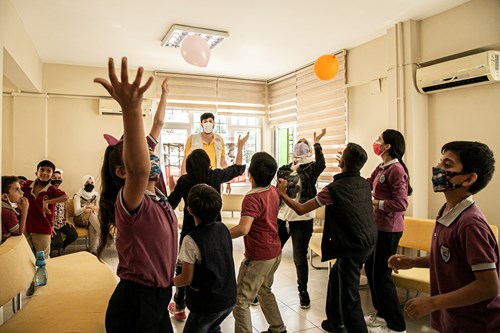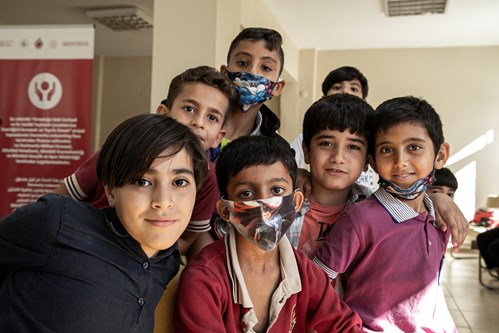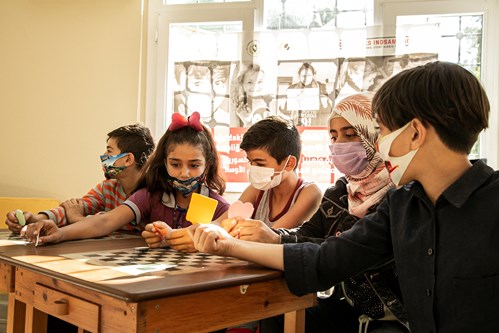
Taha is no longer alone
The Covid-19 pandemic has led to increased marginalization and isolation of refugees worldwide. 12-year-old Taha from Syria is relieved to finally be able to play with his friends again.

Taha is no longer alone
"I love my friends"
It was a warm afternoon in the youth center in a small town called Altinozu in Hatay near the Turkish-Syrian borders. I was taking photos of the children’s psychosocial support activity when a child approached me and asked in Turkish: “Can I see the photos?” I thought he was Turkish and replied in my broken Turkish. He realized that I was Syrian like him and started speaking in Arabic.
Taha is a Syrian child with no memories of his home country. He was only four when his family fled to Turkey because of the conflict in their town in Idleb. He is now 12 and lives everyday life as a child in Altinozu, goes to school and interacts with his friends from Syrian and Turkish communities.
“I love my friends!” he says enthusiastically.
Still, the pandemic hit Turkey like many parts of the world. Schools were closed and shifted their classes online, while a nationwide lockdown was imposed, especially for minors. This situation made children feel bored and stressed. Taha was one of them.

“I used to isolate myself from others and use my parents’ phone.”
Want to be with friends
“I was bored, and I tried to interact more with my parents, but I just wanted to be with my friends who can play the games we all enjoy.”
Taha tried to entertain himself in different ways: he used her rollerblades to skate in his apartment. He played online games with his friends and talked to them, but it wasn’t enough.
“It did help a bit, but I felt bored and stressed,” he said. “I was getting into fights with my brother all the time.”
One day, his mother heard about children’s psychosocial wellbeing activities held by the Danish Refugee Council (DRC). Funded by Danmarks Indsamling, psychosocial wellbeing activities aim to increase the wellbeing of children from the host and refugee communities.
The activities focus on the effects of Covid-19 on children’s psychology and aim to improve their wellbeing by exploring different emotions that this situation triggers. The activity also aims to repair the psychological trauma created by this situation and increase the children’s preparedness against similar situations.
Taha is now joining those activities with other children of his age.
“It feels different to see friends in person,” he said.
“The activities help me learn new games I can play with friends.”






Thank you
He talked about the different games he enjoyed with the new friends from both communities. He is now relieved and entertained. The stressful feelings in the past decreased and his problems with his brother started to fade.
“I wish this activity would never end,” he said with a pleading face.
“I am having a great time here and I finally have the chance to play with friends, talk to each other in person and dance together.”
Taha had a dreamy smile when we started talking about the future before the other children called him. So, I had to finish the interview with this question:
“there are people in Denmark who are going to read your story,” I said.
“Would you like to say anything to them?”
His face brightened and replied with a confident smile that made me laugh.
“You mean my fans,” he said.
“Yes, they are the people who donated to support this activity you are in,” I said.
“So anything you would like to say?”
I just want to say thank you. Because of you, I no longer feel lonely.
Taha
Read more
